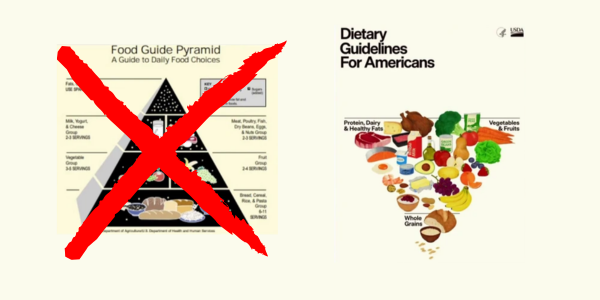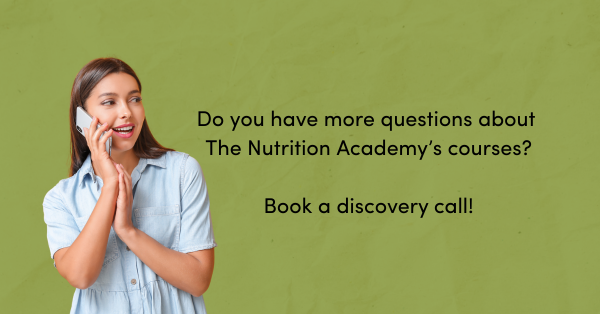



A couple of weeks ago I was contacted by a Chiropractor in Sydney asking me to send Functional Nutrition Academy graduates his way. He wanted someone in his clinic who could teach his patients how to source, prepare and eat a diet based on real food rather than packaged foods.
At last diet and food are being seen as an essential part of healthcare. After 32 years in the field of food and nutrition I’m seeing a dramatic shift in how chronic health and lifestyle issues are now being viewed.
Not only is the public and alternative health professions waking up but also the medical profession at large. In fact only last month the Australian Federal Minister for Health Hon Sussan Ley MP launched the primary care fellowship curriculum. She noted the LIMITED access to nutrition science content in existing Australian medical school curricula, which leaves the medical graduate unprepared for many of the every day challenges that could be addressed in clinical practice.
New curriculum will include; trans-generational changes in health in relation to environmental exposures, the impact of epigenetics (environment) and nutrigenomics (food), positive lifestyle changes; including sleep, physical activity, sunlight exposure, stress management, addictions, environmental factors including agriculture, food processing, industrial, toxic and occupational hazards. This is like music to my ears. I remember the days when people would come to me with a chronic condition and they told me that their doctor had said diet has nothing to do with it. Agh!!!!
Why Diseases and Disorders Aren’t Getting Better
But how does the busy medical doctor, chiropractor or osteopath, coach and mentor a patient through all the changes from diet to cleaning up their environment in 7 to 10 minutes – the typical appointment time allotment?
Last week I read in the Huffington Post an article written by Dr Rangan Chatterjee – Why Modern Medicine Needs to Change, you can read it here. Dr Rangan begins the article with “I love general practice but I don’t love the way general practice operates at the moment. Many of my patients feel frustrated by the short consultation times and feel as though they’re “on the clock” from the minute they walk in…GP satisfaction isn’t any better. A recent study published in the Lancet warns that General Practice in England is reaching “saturation point”, with job dissatisfaction and stress amongst GPs at their highest levels for over a decade.””
Chronic health issues need a different approach to acute ones (emergency or short term). The magic bullet intervention that works for acute illness does not work as well for chronic problems, in other words drugs are not the answer, but rather a complete lifestyle overhaul.
Last month I attended a conference in Sydney, 5 medical specialists spoke from the US. Whether it was the cardiologist, neurologist, integrative GP, immunologist or gastroenterologist they were all talking about diet and lifestyle for chronic conditions, many were disillusioned with their own profession and were looking outside what they were taught. Many GP’s attended as well as naturopaths, heart specialists, neurosurgeons, chiropractors, pharmacists and nutritionists.
There is a slow realisation that things must change and the revolution is happening. I started the Functional Nutrition Course to empower the population who were interested in taking diet and lifestyle into their own hands as they were not getting help from their general practitioners, all they were getting was a prescription. But what I’ve found is that many professionals including; osteopath’s pharmacists, doctors, nurses, chiropractors, psychologists, cancer researchers, and dietitians have all enrolled in the course as they too need to be informed about food, nutrition and lifestyle.
What To Do When a GP Can’t Help Anymore?
Never before have we seen a need like this. A need for people to coach and mentor others through the food and lifestyle changes, with so many people wanting their hands held and needing step-by-step guidelines. Many of our health professionals are struggling to do this, their specialty is in another field but they know diet and lifestyle are needed for their patients to get better. This includes most health professionals. Once they have the knowledge they don’t have the time to devote hours to workshops, home visits, cooking courses, etc. If there is a therapeutic diet required this is different but for most people they just need to be guided into a real food diet and if they are on a therapeutic diet they also need coaching through the changes.
Being ready for this change and being part of the change is what the Functional Nutrition Course prepares you for. This is not something that you can do in a month, this is a solid course that takes time to complete, we envision that if you set aside at least 4-6 hours every week this course can be completed in 12 months. Many of our students find themselves becoming so involved in the information that they can easily spend 10 hours learning about all things health, food and nutrition.
Changing Habits has been ahead of the general curve for 30 plus years. It’s not about trends, it’s about education based on culture and tradition as well as proven philosophy, which acts as a guiding principle to navigate through the enormous amount of mixed messages in the market.
As one of my students, who has a PhD in cancer research and a degree in Nutrition and Dietetics says about the course, it’s the first time the information has been set out in a succinct way in which she can gather all her knowledge based on a guiding principle, and know exactly what to teach her clients.
You do not need a degree to do the course, you just need a passion for learning and if you want to make it a business, a passion to help people make the changes in their own diet and lifestyle.
It was once up to the parents to teach their children cultures and tradition around food based on family and tribal philosophy, but we’ve lost that ability due to all the marketing noise and seduction out of the kitchen by food manufacturers making shelf stable foods. Most people don’t even know what to eat. The role of the Functional Nutrition graduate is to enlighten, teach, mentor people where to source clean, local foods, how to prepare them and then encourage communication and good food back to the table.
I encourage anyone thinking about the course to get started and for anyone doing the course already, let’s keep going and graduate so we can make a tsunami of change in our communities.

Cyndi O’Meara
Nutritionist, Founder of Changing Habits & The Nutrition Academy



Do you have Doctor Merriment, Dr Sleep and Dr Diet in your life?

Learn how to read labels, understand sneaky ingredient terms, what to look for on packaging and more with our Introduction to Nutrition course. Enrol now!
↳ follow the link in our bio

Everything we do, think, feel and believe impacts our body in ways we don`t fully understand. How do you integrate body, mind and spirit in your life?

Isn`t it interesting, all of the terms we have for things that go on in the background of our lives? We don`t ever go `oh, our body is doing hormesis right now!`, instead it just happens in the background. Do you know any other fun terms like this that you know?

Nothing saves you money more than good health - put money in your pocket with The Nutrition Academy. Learn more about how to improve and nurture your health with our courses. Check them out online.
↳ follow the link in our bio

Valentine`s Day is approaching and if you don`t have a present for your loved one yet, consider making them a high-quality, healthy Valentine`s Day treat. Nothing is better than a delicious, healthy and luxurious treat.

This short clip is from Cyndi`s `Will Being Vegan Save the Planet?` and it`s an interesting look at the world of artificial foods. Should humans be eating that? Should dogs?

Looking to spend less time on social media but still want to keep up-to-date about what`s going on with The Nutrition Academy? Download passion.io in your app store and search for TNA Hub, then log in and keep up with us there!

What do you want to start doing now, to make a brand new, happier and healthier, ending?

Carotenoids are what makes your plate colourful and protect your cells from damage. They`re just one block of what makes up a healthy diet.

Change your life and the life of those you love with The Nutrition Academy.
↳ follow the link in our bio

If your 2026 goal includes eating more protein and/or eating healthier, make sure you know what you`re actually eating and how it affects your body.
